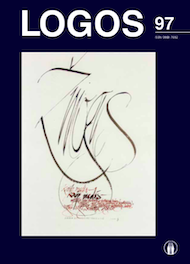PATYRIMO SAMPRATOS: I. KANTAS IR E. HUSSERLIS
CONCEPTIONS OF EXPERIENCE: I. KANT AND E. HUSSERL
Author(s): Edvardas RimkusSubject(s): Epistemology, German Idealism, 19th Century, Phenomenology
Published by: Visuomeninė organizacija »LOGOS«
Keywords: Kant; Husserl; epistemology; phenomenology; experience; apriorism;
Summary/Abstract: The article investigates I. Kant’s and E. Husserl’s conceptions of experience and aims to find out the similarities and differences of these theories. One of the biggest transformations in the reception of kantian theory of experience is Husserl’s interpretation of the thing-in-itself. Husserl rejects some very important aspects of this kantian concept; some meanings of this concept lose the importance in the context of Husserl’s philosophy because of the very methodology of phenomenological philosophy: conceptions of transcendental reduction and relation between science and „lifeworld“ show that Husserl’s theory is orientated to everyday world and to introspectively grasped experience – these things are not apparent in Kant’s theory, and kantian notion of the thing-in-itself is not needed for these conceptions.
Journal: LOGOS - A Journal of Religion, Philosophy, Comparative Cultural Studies and Art
- Issue Year: 2018
- Issue No: 97
- Page Range: 26-35
- Page Count: 10
- Language: Lithuanian

